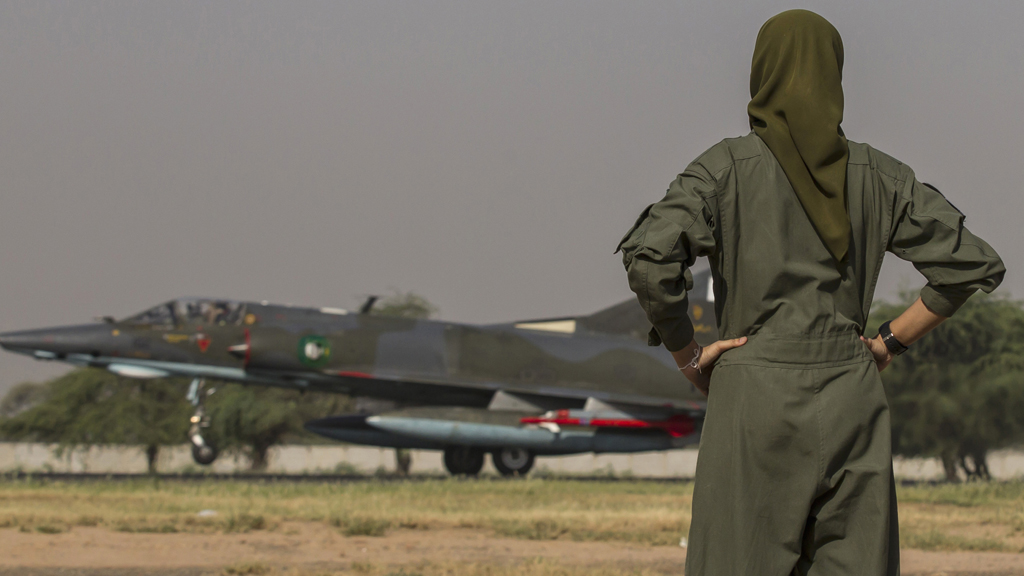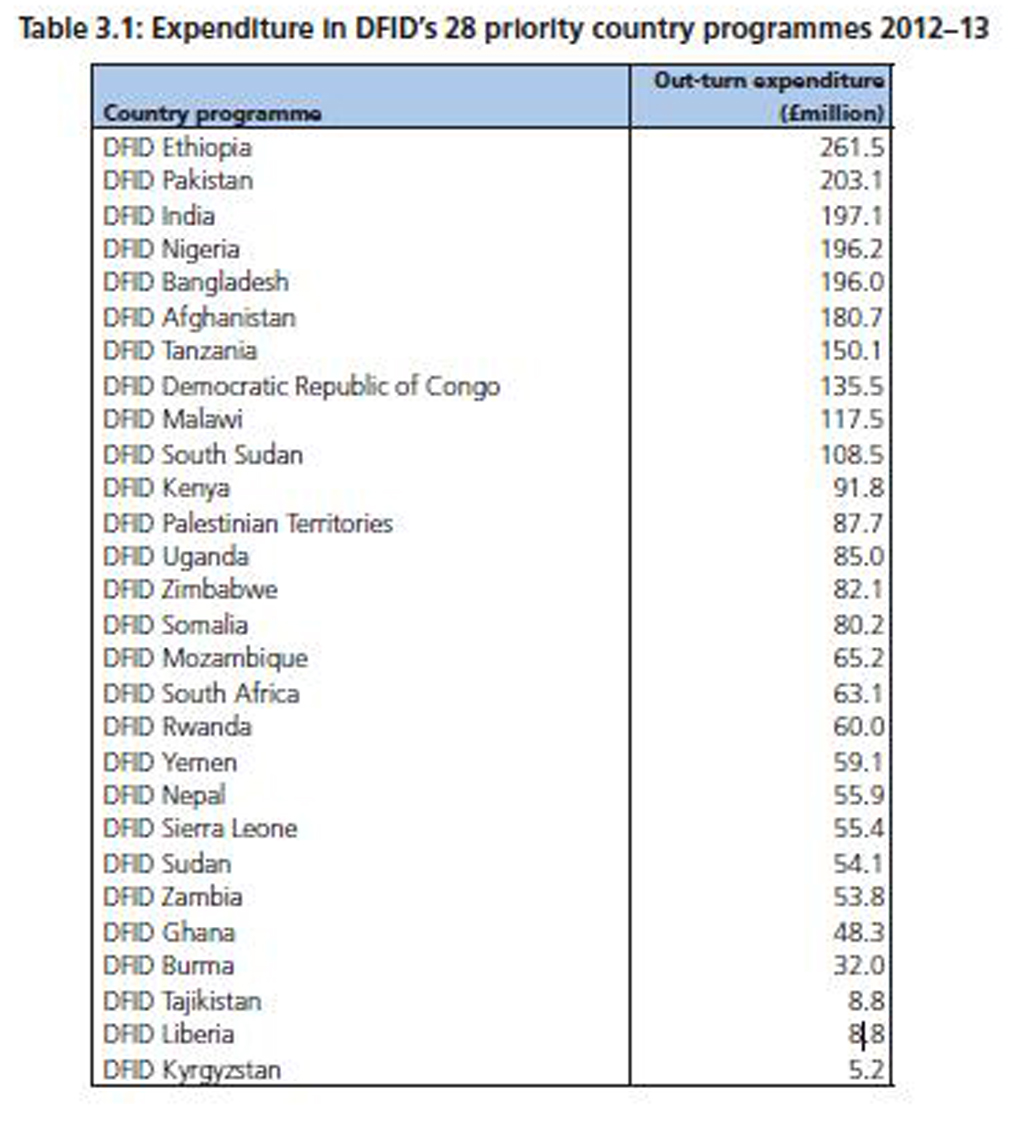Forget bongo bongo language – is Bloom right on aid?
Ukip’s Godfrey Bloom has promised not to repeat his remarks about “bongo bongo land”. But does he have a point about UK aid funding corruption and arms spending abroad? FactCheck investigates.

Mr Bloom, who represents Yorkshire and North Lincolnshire in the European Parliament, told a meeting of Ukip supporters: “How we can possibly be giving a billion pounds a month, when we’re in this sort of debt, to bongo bongo land is completely beyond me.
“To buy Ray-Ban sunglasses, apartments in Paris, Ferraris and all the rest of it that goes with most of the foreign aid. F18s for Pakistan. We need a new squadron of F18s. Who’s got the squadrons? Pakistan, where we send the money.”
Ukip chairman Steve Crowther denied the phrase was racist but said he had asked Mr Bloom not to repeat the phrase “bongo bongo land”.
In an interview with the BBC on Wednesday, Mr Bloom said: “If you’re fed up with £1bn a month going abroad with no audit trail when we’re cutting our police and hospitals, vote for me.
He later said: “I must not use the terminology in the future, nor will I and sincerely regret any genuine offence which might have been caused.”
But he added: “My aim, successful as it appears, was to demonstrate the immorality of sending £1 bn per month abroad when we are desperately short of money here.
“Ring-fenced overseas aid at nearly 70 per cent of estimated GDP growth next year, some to buy arms – Mirage fighters in Argentina is just one example.”
A billion a month?
About right. The government is committed to giving away 0.7 per cent of Britain’s GDP as overseas aid by this year.
In 2014/15 Official Development Assistance (ODA) is projected to be £11.7bn, and it is forecast to rise to £12.2bn in the next financial year.
In 2012, total aid expenditure was £8.6 billion, or 0.56 per cent of GDP. In 1997 only 0.26 per cent of national income went on overseas aid.
If Britain hits the 0.7 per cent target this year, it will join only five countries to have achieved that level of spending: Norway, Sweden, Netherlands, Denmark and Luxembourg.
This table shows how much the Department for International Development (Dfid) spent where in 2012/13, covering the vast majority of total UK overseas aid.
Despite Mr Bloom’s reference to Argentina, Britain does not give direct financial assistance to the South American country through Dfid.
Argentina has been loaned money by the World Bank and has received aid in the past from the European Union. Both institutions are partly funded by the UK.

This is just a snapshot of current spending, and there are big changes in the offing.
Pakistan is set to receive £446m, the most aid of any country, by 2014/15, while aid to India will cease altogether after 2015.
No audit trail?
Dfid would dispute this, saying it has taken steps to improve transparency so taxpayers know how their money is being spent.
The coalition decided to focus aid on 28 countries and launched the UK Aid Transparency Guarantee, meaning that details of departmental spending above £500 are published regularly.
Dfid produces country-by-country breakdowns, including this site with interactive maps, to show which programmes it is supporting.
The department says it will eventually require every organisation it works with to sign up to standards set out by the International Aid Transparency Initiative.
Fighter jets?
Aid cannot be spent on military hardware, under international rules. The OECD says: “No military equipment or services are reportable as ODA. Anti-terrorism activities are also excluded. However, the cost of using donors’ armed forces to deliver humanitarian aid is eligible.”
Clearly, Mr Bloom’s F18 fighter jets could not be bought (legally) using aid money.
Of course, you could argue that supporting foreign governments with aid frees up more money for them to spend in other areas like defence.
The Stockholm International Peace Research Institute (Sipri) publish internationally recognised figures on military spending.
Sipri figures from 2012 suggest that most countries currently in receipt of UK aid spend a substantial amount of money on defence. India spends the most, £46bn in 2012, with Pakistan next on £6.7bn.
Pakistan spends a higher percentage of its national wealth on defence, as do three other recipients of UK aid – Sudan, Kyrgyzstan and Yemen.
Corruption?
Dfid claims to have made great strides against corruption in countries that get aid, with each one having a new anti-corruption strategy.
Nevertheless, experts say the challenges remain enormous. Pakistan was rated 139th out of 174 countries on Transparency International‘s latest Corruption Perceptions Index. Most of the other 28 countries on the aid list score badly too.
The International Development Select Committee said of Pakistan: “Corruption is rife in a social order based on patronage and kinship networks. Pakistan’s rich do not pay taxes and exhibit little interest in improving conditions and opportunities for Pakistan’s poor.”
-
Latest news
-
As India goes to the polls in the world’s largest election – what do British-Indians think?6m

-
Tees Valley: Meet the candidates in one of the biggest contests coming up in May’s local elections4m

-
Keir Starmer says public sector reform will be a struggle7m

-
Nicola Sturgeon’s husband Peter Murrell charged with embezzlement of funds from SNP1m

-
Ukraine might finally get $60billion in American weapons and assistance to defend against Russia3m

-




